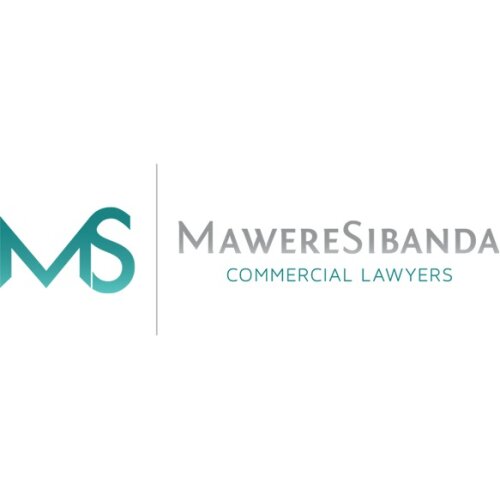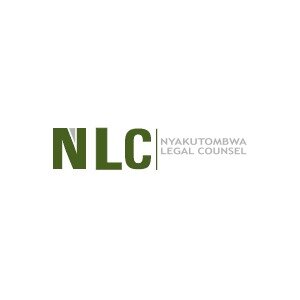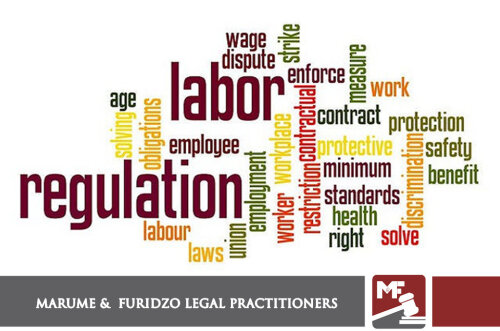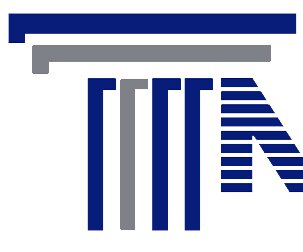Best Real Estate Contracts and Negotiations Lawyers in Harare
Share your needs with us, get contacted by law firms.
Free. Takes 2 min.
Free Guide to Hiring a Real Estate Lawyer
List of the best lawyers in Harare, Zimbabwe
About Real Estate Contracts and Negotiations in Harare, Zimbabwe
Real estate transactions in Harare involve the buying, selling, leasing, or renting of properties and are governed by an array of contracts and legal negotiations. These contracts spell out the rights and responsibilities of the parties involved and ensure the transaction conforms to local laws and regulations. Effective negotiation is crucial to ensure that the interests of all parties are well represented. Understanding the intricacies of these contracts can be challenging, which is why informed legal assistance is often essential.
Law in Harare, Zimbabwe: A Brief Overview of Real Estate Contracts and Negotiations
In Harare, real estate contracts and negotiations are heavily influenced by national laws, including the Deeds Registries Act, the Land Survey Act, the Transfer Duty Act, and other applicable property legislation. These laws govern the registration of deeds, land transfers, and the legal obligations of the parties involved. The complexity of these transactions often requires the expertise of legal professionals who understand the local real estate market dynamics and legal landscape.
Why You May Need a Lawyer
There are several circumstances where individuals or entities might need legal assistance in real estate transactions within Harare:
- Property Sales and Purchases: To navigate contractual agreements efficiently and legally.
- Lease Agreements: To ensure that rental terms are fair and comply with local laws.
- Property Disputes: Litigation and dispute resolution between landlords and tenants or property boundaries.
- Development Projects: Compliance with zoning and land use regulations.
- Title Issues: Clarification and resolution of title deeds and ownership concerns.
Local Laws Overview
Several key legal aspects govern real estate contracts in Harare:
- Deeds Registries Act: Governs the formal registration of property ownership and transfers.
- Conveyancing Law: Outlines the legal process of transferring property, including the roles of conveyancers and notaries.
- Transfer Duty Act: Pertains to the taxation involved in transferring property ownership.
- Land Use and Environmental Regulations: Impacts development projects and real estate investments, requiring compliance with relevant zoning laws.
Frequently Asked Questions
What is the role of a conveyancer in Harare?
A conveyancer is a licensed legal practitioner who specializes in the legal aspects of buying and selling property. They ensure property transfers are conducted legally and efficiently.
Can a foreigner buy property in Harare?
Yes, foreigners can purchase property in Harare, but they must comply with certain legal requirements and, often, the transaction is subject to approval by regulatory authorities.
What are the common types of real estate contracts used?
The most common contracts include sale agreements, lease agreements, and mortgage agreements.
How long does it typically take to close a real estate deal?
This varies, but a typical transaction can take between 30 to 90 days, depending on the complexity and the parties’ readiness.
Is it necessary to have a lawyer present during real estate negotiations?
While it is not mandatory, having a legal expert can safeguard your interests and ensure all agreements comply with local laws.
What should I check before buying property in Harare?
It is crucial to verify the property’s title deed, assess any liens or encumbrances, and evaluate zoning compliance.
Are there any taxes involved in property transactions?
Yes, property transactions are subject to taxes, including transfer duty and capital gains tax.
What is the process for resolving a real estate dispute?
Most disputes are initially handled through negotiation or mediation. Should these fail, litigation in the civil courts may be pursued.
How does one ensure a fair valuation of property?
Engage a qualified and independent property valuator to assess the property's market value accurately.
Can lease agreements be terminated prematurely?
Yes, but depending on the terms specified in the lease contract and mutual agreements between the parties involved, there could be penalties or other implications.
Additional Resources
If you seek further information or assistance, consider these resources:
- Zimbabwe Law Society: Offers guidance and resources for legal matters.
- Deeds Registry Office: Provides services related to property registrations and title deeds.
- Ministry of Local Government and Public Works: Regulates urban development and zoning laws.
- Real Estate Institute of Zimbabwe (REIZ): A professional body of real estate practitioners offering industry insights and standards.
Next Steps
If you need legal assistance in real estate contracts and negotiations in Harare, consider the following steps:
- Consult with a qualified real estate lawyer or conveyancer with a deep understanding of local laws.
- Prepare all necessary documentation related to your real estate transaction or issue.
- Consider seeking mediation services for dispute resolution as an initial step before litigation.
- Stay informed of local property laws and market conditions to make well-informed decisions.
Lawzana helps you find the best lawyers and law firms in Harare through a curated and pre-screened list of qualified legal professionals. Our platform offers rankings and detailed profiles of attorneys and law firms, allowing you to compare based on practice areas, including Real Estate Contracts and Negotiations, experience, and client feedback.
Each profile includes a description of the firm's areas of practice, client reviews, team members and partners, year of establishment, spoken languages, office locations, contact information, social media presence, and any published articles or resources. Most firms on our platform speak English and are experienced in both local and international legal matters.
Get a quote from top-rated law firms in Harare, Zimbabwe — quickly, securely, and without unnecessary hassle.
Disclaimer:
The information provided on this page is for general informational purposes only and does not constitute legal advice. While we strive to ensure the accuracy and relevance of the content, legal information may change over time, and interpretations of the law can vary. You should always consult with a qualified legal professional for advice specific to your situation.
We disclaim all liability for actions taken or not taken based on the content of this page. If you believe any information is incorrect or outdated, please contact us, and we will review and update it where appropriate.















